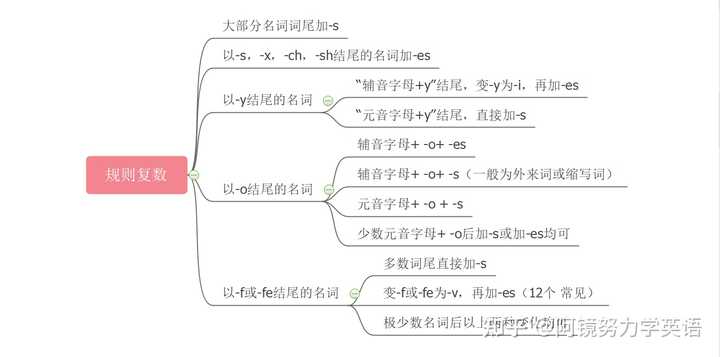study&learn
study表示学习学科、课程、项目、话题,是理论的。learn表示学习某个技能或者其他,是通过实践来学习的。比如:
i study bussiness management at college, but i learned how to run bussiness by doing it.
特别的,我们可以通过learn来表达一些特殊的意思,即实践学习、体验学习等
my son learned chinese as a baby. 表示沉浸式学习而不是学习了课程
he spent six months at the revolutionary base in yanan, where he studied/learned the history of the communist party.study表示在这里参加了(安排的课程),learn表示通过参观和耳濡目染的形式学习
同时,study侧重学习的过程,而learn侧重学习的结果
today in class we studied irregular verbs, and i learned several new past tense forms
learn和learn about之间也存在差别,learn获取的是事实,而learn about获得的是信息
on the first day of the summer camp we learned the names of our fellow students, and we learned about their backgrounds. 前者用learn about是错误的,后者用learn会产生误导,意思是知道了关于大家北京的一切而不是一些信息。常见无复数形式的名词
advice
aircraft
assistance
consensus
equipment
evidence
training单数复数意义不同
aid——aids:aid,n,帮助;AIDS,艾滋病
attention——attentions:attention,n,注意,关注; attentions, n,殷勤(不常用)
consumption——consumputions:consumption,n,消耗,摄入。consumptions,呼吸道疾病。
damage——damages:damage,n,v,损害,毁坏。damage,n,(法律语境中)赔偿
discipline——disciplines:discipline,n,表示纪律、恰当的行为举止时没有复数形式。表示学科、一门学术研究的时候有复数形式。
enlightenment——insights:enlightenment,表示一种广泛的觉醒状态,用在宗教活动中,没有复数形式。insight和对某个事物或议题的具体理解有关,有复数形式。
progress——progresses:progress,n,v,进步,发展,前进。名词形式没有复数形式,progresses是动词的第三人称单数
research——researches:research,n,vt,vi,研究。名词形式无复数形式,researches为动词第三人称单数,但是,research的动词形式比较不正式,比较少用。research=conduct research into
staff——staffs:staff,n,雇员,棍子/窄板。表示雇员时,为抽象的集合名词,没有复数(但是可以说 an outstanding staff,因为有形容词修饰)。表示棍子的时候有复数形式。
同时包含单数和复数形式的名词
contribution/contributions
contribution既有抽象意义又有具象意义。抽象意义上表达笼统概念上的帮助,具象意义为更具体的捐赠物,一般是经济上的捐赠,如金钱债券等。抽象时,一般不用复数。同时,表达抽象意义时,可以采用动词来表达
china has made a significant contribution to the un peacekeeping force
chana has contribed to the un peacekeeping force
convenience/conveniences
convenience的抽象意义是使生活变得方便的东西,只能用单数形式,可以说a greater level of convenience。其具体意义是公共厕所,可以用复数,同时还有一个惯用用法:all modern conveniences,意思是一切现代化设施
grain/grains
grain属于大宗商品(tea,oil等的用法类似),当grain表示一批货物的时候,只能用单数。表示不同种类的grain时可以用复数,表示一定数量(个数)的grain时可以用复数
when we need grain, we must get grain
put three grains of wheat on a sheet of paper
the province produces several different grains/teas/oils
注意到上面这句话,其实都暗含了修饰语“type of", 但是如果修饰语被明确表达时,就需要用单数
the province produces several different type of grain/tea/oil
talent/talents
talent表示抽象的集合名词的时候,意思是天才,即talented people,没有复数
there are plenty of outstanding talent in our organisation
此时虽然没有复数,但是可以加a,即a talented person, 如
he is an outstanding talent in the field of physics
talent作为可数抽象名词时表示才能(skill)是可数的,有单数也有复数
she was born with a talent for music
尤其需要注意的是,这个词在加上array of , range of 等修饰词的时候,单复数表达的意思是不同的
what an impressive array of talent you have put on display today,表示赞赏你们是一群天才,what an impressive group of talented people
what an impressive array of talents you have put on display today, 表示赞叹你们的才艺,what an impressive group of skills修饰语
用修饰语来描述没有复数形式的词语数量概念是非常有效的,需要注意,当采用复数形式的修饰语时,一般被修饰词要使用单数形式。常见的修饰语包括:
amounts of
forms of
items of
levels of
members of
qualities of
rates of
sets of
sorts of
species of
types of
quantities of
volumes of the students conducted different types of research.普通名词
backbone,n. 脊骨,脊柱
这个词一般不用比喻意义,不可以说somebody is the backbone of a team
batch,一批, 一组, 一群
这个词表示工业场景下的一批货物,不可以用来说人,如a batch of student是非常不礼貌的。
这里穿插一个小示例:这个项目已经输送了18批专家,总计409名
it has sent 409 experts in 18 groups.
it has sent 18 groups of 409 experts的表达是不清晰的。
bunch,n. 串;群
这个词的意义比较窄,一般都是指一串什么东西,也可以指大量物品的集合。这个词和batch一样,不可以指人,更加不尊重。
commodity,n. 商品, 货物
commodity是products下的一个商品类别,指的是大宗商品,通常还是进行国际交易的那种大宗商品。有一个非常容易的区分方法:你不可能在商店买到commodity
connotation,n. 内涵;含蓄;暗示,隐含意义;储蓄的东西(词、语等)
这个词的意思非常明确,指在你经历某件事或者活动的时候,使你想起了另一件事或者活动。不可以宽泛的认为这个词的意思是“内涵,含义、意义、定义”等。
although the music was modern, it had connotations of 19th century classics.
虽然是现代的音乐,但是却给人19世纪古典音乐的感觉
dilemma,n左右为难
这个词要和problem进行区分,这个此表达的是两难的选择。当然,这个选择不一定都是负面的,你可以在两个积极的选择之间 trapped on the horn of a dilemma
i faced a dilemma--to confess that i had broken the window and face my parents' anger, or keep quiet and let them continue to believe that it was my brother
disaster,n. 不幸;灾难,灾祸
disaster是所有灾难的统称,诸如雪灾、洪灾等。但是在表达雪灾洪灾的时候,不可以在后面加上disaster,否则就象是在说“雪灾灾害”,是重复的。但是在这些具体的灾害前加上形容词disasstrous
旱灾 drought
风暴 strom火灾的描述比较复杂,如果是森林火灾等,可以说forest fire, grassland fire, 其他的可以笼统地说 be destroyed by fire
瘟疫可以说infestations of xxx, 蝗灾等可以说 plagues of xxx(locusts,蝗灾)
investigation,n. (正式的)调查,侦查,科学研究;学术研究
investigation和analysis/study/research有比较大的区别,在表达学术研究的时候和research等的差别不大,但是在表达非学术意义上的问题时,investigation的应用场景非常窄,可以认为,只有有人做错事了,在寻找这件事情是怎么回事,是谁做的的时候才可以用。
一个很有争议的例句如下:
the government sent a team of academic experts out into the countryside for investigations
政府派出了一堆学术专家到乡下进行调研
这里的调研,如果指的是学术研究,当然可以用investigation,但是政府派出来的队伍,应该不是出于学术目的,应该是在为某项政策的实施做背景调研或考察等,用investigation就不合适了。这里有一个非常地道的表达——field study
the government sent a team of academic experts out into the countryside to carry out field study
这里对以下单词进行比较
consideration/reflection,任何县官人员都可以进行的活动,不需要进行正式或者书面的工作
analysis/study,进行这类活动的人,通常都掌握了当前项目所需要的某些知识,活动开展后会给出正式或者书面的报告
research,通常指由专业人员进行的正式学术研究。
但是!investigation这个词的动词形式investigate却没有这么多规矩,可以认为和research等是一样的。
mountain
这个词看起来很熟悉,我们需要区分的是山和山脉。
比如祁连山脉,可以表达为:the qilian mountains,或者 the qilian mountain range
同时,一些知名的山脉也可以直接在山脉名称后加s而省略mountain,如the Alps,阿尔卑斯山脉
remarks,n. 摘要;附注;评论(remark的复数)
opening remarks开场白
这个词在演讲中(presentation)中表示的要么是演讲者在发表正是演讲前,用来引入演讲内容的一段统领的发言,要么是用来填充空白时间,没有太大意义的非正式交谈,一般是没有预先计划好的,没有深思熟虑的言论
但是,这个词在表达其他意义的时候,表达的含义就不同了,不再是无足轻重的话。甚至其形容词remarkable,意思是引人注目、印象深刻的
scholar,n. 学者;奖学金获得者
这个词没有大问题,但是在表达学者的时候,这个词非常古板陈腐,建议更换为academic
status/status quo
二者有显著差别,不可混用。status quo的意思是the way things are now或者the way things were then. 也因此,不能说 the status que of something,而the status of something 则是正确的。
判断是否可以使用status时,则可以使用position、situation换掉status进行检查
technology/technique/process
technology指的是机械装置或者设备
technique指的是实践、方式或者做事方法,特别是操作技能或肢体活动
process可以替代上述二者
动词



